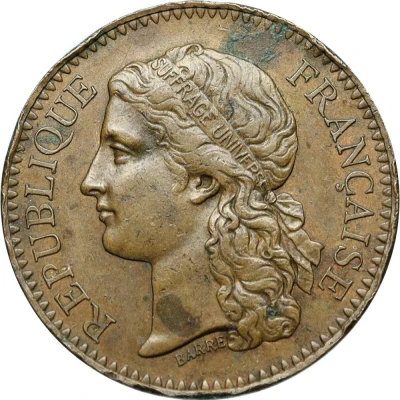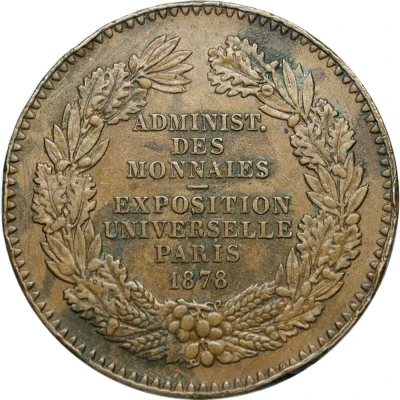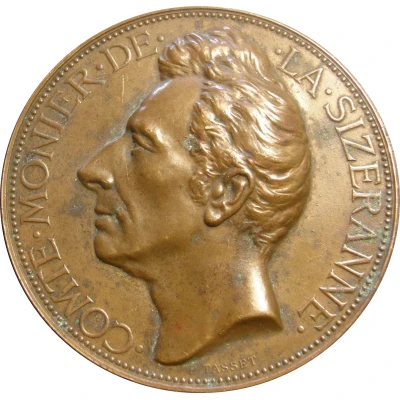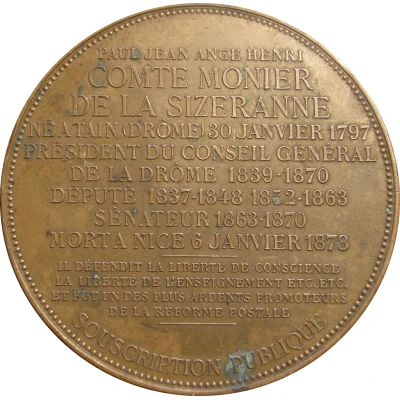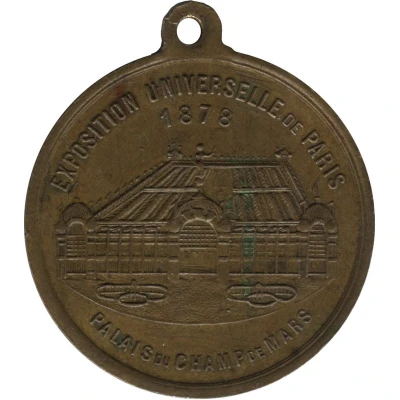
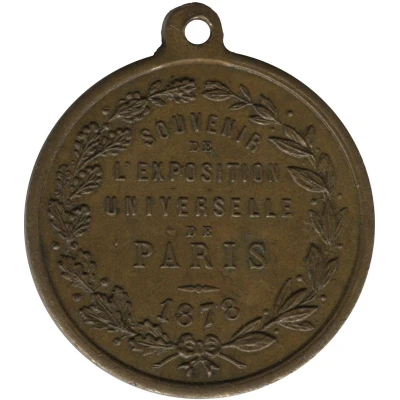

Exposition universelle de - Palais du Champ de Mars
1878 year| Copper | 11.4 g | 33 mm |
| Location | France |
|---|---|
| Period | Third Republic (1870-1940) |
| Type | Commemorative medals › Exhibition, fair and festival medals |
| Year | 1878 |
| Composition | Copper |
| Weight | 11.4 g |
| Diameter | 33 mm |
| Thickness | 1.5 mm |
| Shape | Round with a loop |
| Technique | Milled |
| Orientation | Medal alignment ↑↑ |
| Updated | 2024-11-12 |
| Numista | N#426933 |
|---|---|
| Rarity index | 97% |
Reverse
Between two knotted oak and olive branches, text in 7 lines.
Script: Latin
Lettering:
SOUVENIR
DE
L’EXPOSITION
UNIVERSELLE
DE
PARIS
1878
Edge
Plain
Comment
The Palais du Champ de Mars, also known as the Iron Palace, occupies almost the entire Champ-de-Mars. It contains shipments from all nations. Resembling a long checkerboard greenhouse, it covers an area of 420,000 m². It's a vast rectangle opening onto a vestibule on both sides. The first vestibule is known as the "vestibule d'Iéna", while the second is known as the "vestibule école militaire". The engineer responsible for the steelwork was Henri de Dion, who died before construction was completed, and the architect was Léopold Hardy. The manufacturers awarded the contract were Fives-Lille and Schneider.
The "rue des nations", with its facades typical of each of the exhibiting countries, occupies one side of the building. The other side is reserved for French and colonial products. The center of the building is devoted to the fine arts and the City of Paris stand.
The "Galerie du Travail" showcases the wealth of human know-how and allows visitors to observe workers at work. The world of toys features clever toys, small steam engines, clockwork trains, building sets and animated dolls.
An anthropology section allows visitors to observe a series of murderers' skulls, in parallel with the holding of an "International Congress of Anthropological Sciences".
Source : Wikipedia
